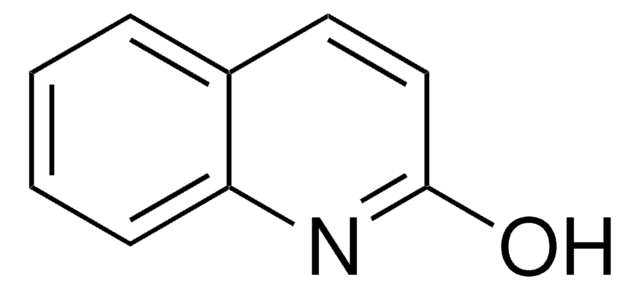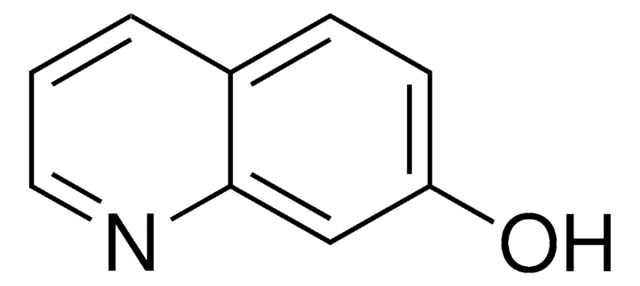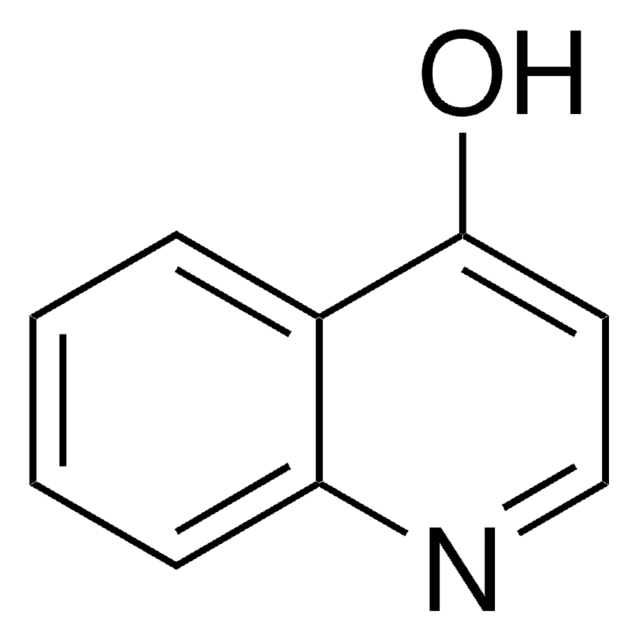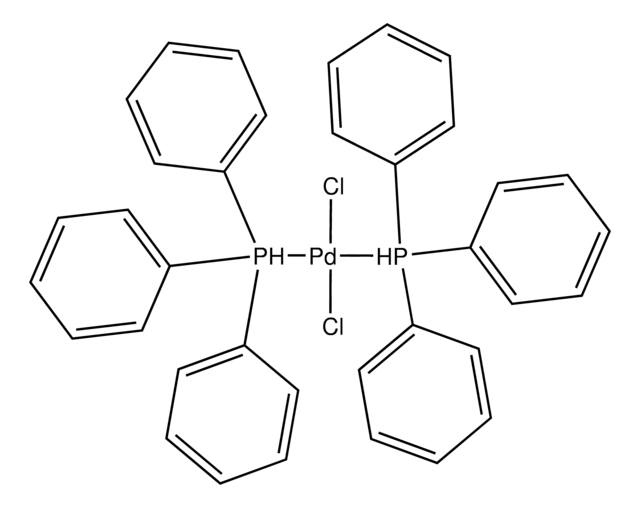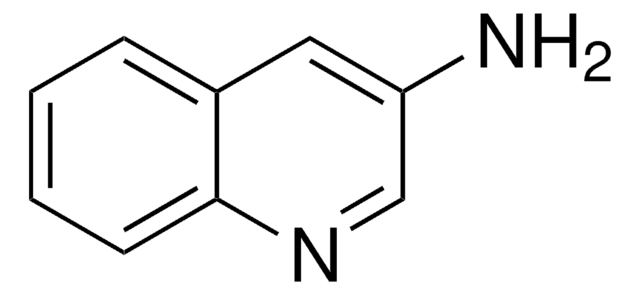304484
6-Hydroxyquinoline
95%
Synonym(s):
6-Quinolinol, 6-Hydroxyquinoline
Sign Into View Organizational & Contract Pricing
All Photos(3)
About This Item
Empirical Formula (Hill Notation):
C9H7NO
CAS Number:
Molecular Weight:
145.16
Beilstein:
113196
EC Number:
MDL number:
UNSPSC Code:
12352100
PubChem Substance ID:
NACRES:
NA.22
Recommended Products
Quality Level
Assay
95%
mp
188-190 °C (lit.)
SMILES string
Oc1ccc2ncccc2c1
InChI
1S/C9H7NO/c11-8-3-4-9-7(6-8)2-1-5-10-9/h1-6,11H
InChI key
OVYWMEWYEJLIER-UHFFFAOYSA-N
Looking for similar products? Visit Product Comparison Guide
Related Categories
General description
6-Hydroxyquinoline is an ideal photoacid system for exploring excited-state proton transfer (ESPT) reactions. The excited-state proton transfer and geminate recombination of 6-hydroxyquinoline encaged in catalytic Na+-exchanged faujasite zeolites X and Y have been explored by measuring steady-state and picosecond time-resolved spectra.
Application
6-Hydroxyquinoline was used in synthesis of 2,6-substituted-benzo[d]thiazole analogs and 2,4-substituted-benzo[d]thiazole analogs.
Signal Word
Warning
Hazard Statements
Precautionary Statements
Hazard Classifications
Eye Irrit. 2 - Skin Irrit. 2 - STOT SE 3
Target Organs
Respiratory system
Storage Class Code
11 - Combustible Solids
WGK
WGK 3
Flash Point(F)
Not applicable
Flash Point(C)
Not applicable
Personal Protective Equipment
dust mask type N95 (US), Eyeshields, Gloves
Choose from one of the most recent versions:
Already Own This Product?
Find documentation for the products that you have recently purchased in the Document Library.
Customers Also Viewed
Yu-Hui Liu et al.
Spectrochimica acta. Part A, Molecular and biomolecular spectroscopy, 128, 280-284 (2014-04-01)
6-Hydroxyquinoline (6HQ) is an ideal photoacid system for exploring excited-state proton transfer (ESPT) reactions. We have previously (Mahata et al. (2002)) shown that the ESPT reaction between 6HQ and trimethylamine (TMA) leads to an "unusual" emission in the 440-450 nm
Katharigatta Narayanaswamy Venugopala et al.
European journal of medicinal chemistry, 65, 295-303 (2013-06-04)
A novel and efficient one pot synthesis was developed for 2,6-substituted-benzo[d]thiazole analogues 4a-k and 2,4-substituted-benzo[d]thiazole analogues 4l-pvia three component condensation reaction of substituted arylaldehyde, 2-amino-6-halo/4-methyl-benzo[d]thiazole and 2-naphthol or 6-hydroxyquinoline in presence of 10% w/v NaCl in water by microwave method.
G Bott et al.
Biological chemistry Hoppe-Seyler, 372(6), 381-383 (1991-06-01)
Two strains, using 6-hydroxyquinoline as sole source of energy, carbon and nitrogen, have been isolated. These bacteria, designated 31/1 Fa1 and 31/2 A1, are also able to degrade quinoline. According to their physiological properties strain 31/1 Fa1 has been identified
Selective phenolic acylation of 10-hydroxycamptothecin using poly (ethylene glycol) carboxylic acid.
Richard B Greenwald et al.
Bioorganic & medicinal chemistry letters, 13(3), 577-580 (2003-02-05)
Selective acylation of the phenolic hydroxyl group of 10-hydroxycamptothecin has been accomplished using phenyl dichlorophosphate. Additional modification of the 10-OH as an ether permits a 20-acyl derivative to be synthesized. This result along with data from a 6-hydroxyquinoline model strongly
Anna Michta et al.
Acta crystallographica. Section C, Crystal structure communications, 65(Pt 2), o66-o69 (2009-02-05)
The title compound, C(9)H(7)NO, has two symmetry-independent molecules in the asymmetric unit, which have different conformations of the hydroxy group with respect to the quinoline ring. One of the molecules adopts a cis conformation, while the other shows a trans
Our team of scientists has experience in all areas of research including Life Science, Material Science, Chemical Synthesis, Chromatography, Analytical and many others.
Contact Technical Service
